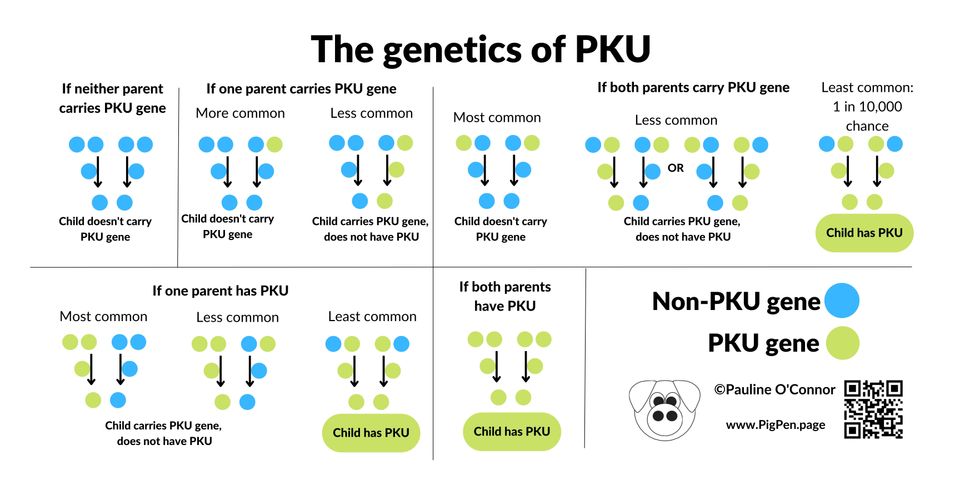The genetics of PKU

A simple run down of the genetics of PKU, and how that relates to sapropterin testing. (I’m going for the “Explain like I’m five” version here. There are complete definitions available online.)
PKU is caused by a recessive and inheritable change in our DNA. Bear with me, I’ll break that down.
Our DNA is a series of chemical messages inside us which carry all the information about how we live and look. It is basically the recipe for how we are built.
Inheritable change means that there is a change in this ‘recipe’ which is handed down within families.
Recessive means that the change is rarely passed down to children.
So, PKU is caused by an uncommon change in a part of the recipe which builds us, and that change can be passed down within families. Someone with PKU has inherited two slightly changed parts of DNA, one from each parent. A person without PKU might have either two standard parts of DNA, or one standard and one changed part. It is only when a person inherits two changed parts of DNA that they have PKU. The chart above might help with this bit!
PKU is quite rare because most people inherit two standard parts of DNA, or one standard part and one changed part. The chance of the child having PKU depends on which part is inherited from the other parent.
Potential parents can be tested to determine whether they are carriers or not. There are several companies which offer this testing commercially. I have not been able to find any free carrier testing. The best source to find this type of testing would be your local PKU clinic, specialist, or support group.
Sapropterin testing
We know from the above that someone with PKU has inherited two changed parts of DNA, one from each parent. However, not all the changes which give PKU are the same. Or, to put it another way, everyone's recipe is changed in a slightly different way.
At last count, there were more than 950 recorded changes in the DNA which led to someone having PKU. This explains why there are some people with PKU who can tolerate more protein than others, they inherited a different mix of these 950 changes.
It also explains why sapropterin will work well in some people with PKU, and not in others. It comes down to the mix of these 950+ DNA changes which we inherited. This is why the UK has been conducting DNA (genetics) testing for sapropterin responses.

